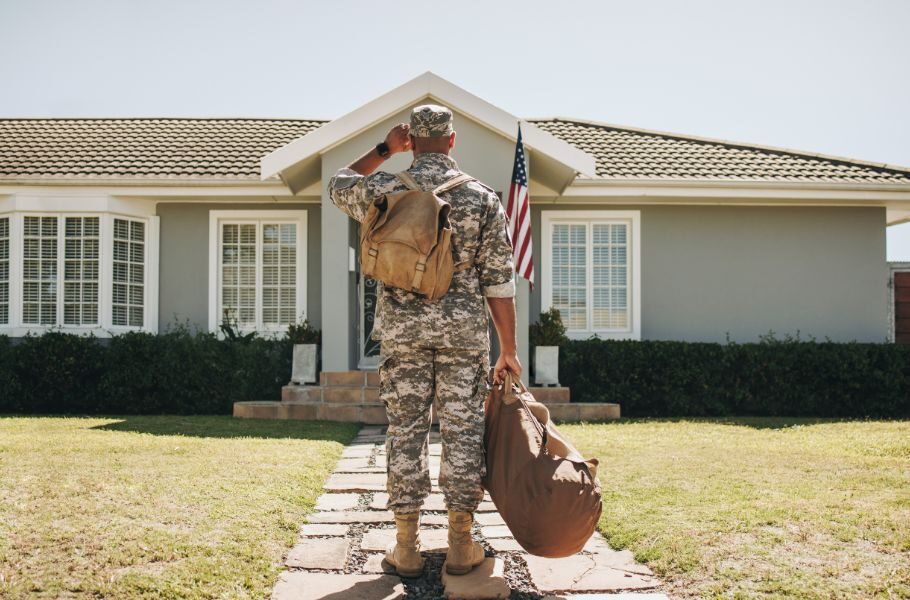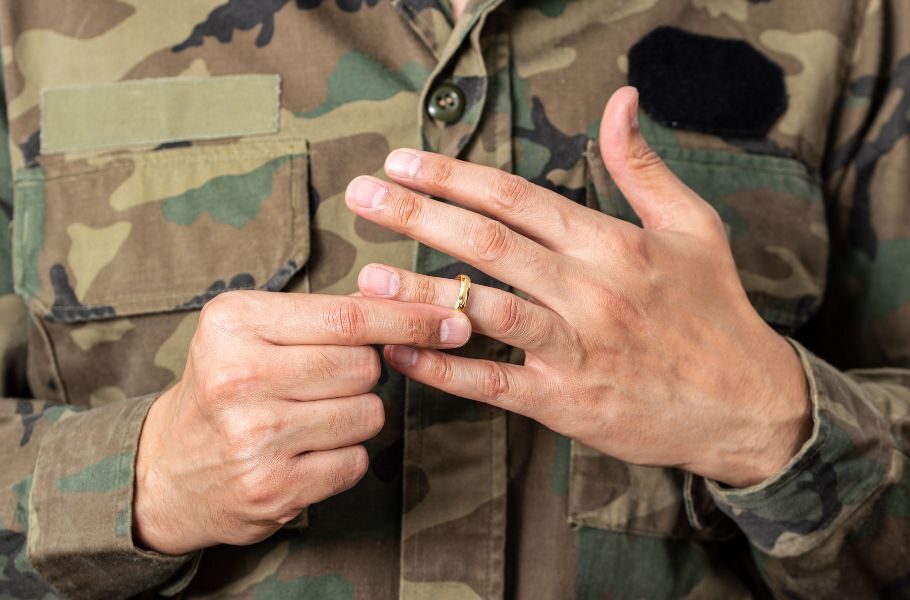For people under thirty, the military consistently ranks as one of the top ten jobs with the highest divorce rate. Military families face additional challenges beyond the usual family law disputes in a divorce case. Deployment can delay a military divorce case, navigating benefits and dividing a military pension can be tricky legal matters. If you need assistance with a military divorce in the Chesapeake, Virginia area, our Chesapeake divorce lawyers at Melone Hatley, P.C. are available to help. Call our office located in Chesapeake at 757-296-0580 to schedule an appointment, or visit our website and ask a question with the online contact form.
Does Being Stationed in Chesapeake Count as Virginia Residency?

In order to file for a divorce in Virginia, one or both spouses must have lived in this state for at least six months. Being stationed at a military base in Virginia meets this residency requirement. As long as you or your spouse have been stationed in Virginia for six months or longer, you can file for divorce in Virginia.
How Does Deployment Affect Divorce in Chesapeake?
Deployment does not prevent a divorce proceeding from happening, but it can delay it. If you are a non-military spouse, you can file for divorce and have your service member spouse served with the papers while they are away on deployment. However, they have a right to pause the case until their deployment ends. The Service members’ Civil Relief Act (SCRA) is a federal law that protects service members from having court judgments entered against them while they are unavailable due to deployment. If the military spouse wants to move the divorce forward, they can participate remotely.
Chesapeake Military Divorce
Lawyer Near Me
How Are Military Retirement and Benefits Divided in a Chesapeake Divorce?
According to our Chesapeake family lawyers, a non-military spouse may continue to receive many of the military benefits they received during the marriage while the divorce case is pending. They may be able to keep some benefits after the divorce, depending on factors like the length of the marriage.
Military ID and Commissary
All non-military spouses can keep their military ID and continue to use commissaries and exchanges until the divorce proceedings are complete and the divorce is final. If they satisfy the 20/20/20 rule, they may continue receiving many benefits after the divorce. The 20/20/20 rule has three parts:
- The spouses were married for at least 20 years.
- The military spouse served for at least 20 years.
- The marriage and the military service overlapped by a minimum of 20 years.
If you meet all three criteria as an ex-spouse, you will maintain access to military benefits for the rest of your life.
Housing
If a non-military spouse is living in military housing when their divorce case begins, they typically may continue to live there for a maximum of 30 days after their military spouse moves out.
TRICARE
As soon as a divorce is complete, a non-military spouse will lose their TRICARE health benefits, with three exceptions:
- A former spouse who satisfies the 20/20/20 rule can continue to receive TRICARE benefits indefinitely.
- If they satisfy the 20/20/15 rule, which only requires 15 years of overlap between marriage and military service, the civilian spouse remains eligible for one year after the date of the divorce.
- Any non-military former spouse can purchase up to 36 months of TRICARE coverage from the Department of Defense (DOD) Continued Health Care Benefit Program. However, less expensive options may be available to them.
Spousal and Child Support
Virginia state law governs most aspects of the divorce process for military families, including spousal support and child support. In military divorces, questions may arise about how payments get to the recipient, especially while the divorce case is ongoing. Each military branch has distinct policies regarding temporary spousal and child support. Speak to a military divorce attorney who can review these policies with you.
Uniformed Services Former Spouse Protection Act
The Uniformed Services Former Spouse Protection Act (USFSPA) provides a limited range of benefits for un-remarried ex-spouses. Which benefits a former spouse may receive depends on the marriage’s length and the marriage’s overlap with active duty service. The 20/20/20 rule discussed above is an example of eligibility for benefits under the USFSPA.
Retirement Benefits
Military pensions are considered a form of marital property that courts may divide between spouses in a divorce. This only applies to a service member’s disposable retired pay. Other benefits, such as disability benefits from the DOD or VA, are not included.
The amount of military retirement pay that a court may consider marital property depends on the state property division laws. In Virginia, the amount of military retirement pay that the service member spouse accrued during the marriage is deemed to be marital property. A court must make an equitable distribution of that portion.
Federal law determines how someone may receive their share of a service member’s retirement pay. The Defense Finance and Accounting Service (DFAS), an office of the DOD, will only make payments directly to the former spouse in limited situations.
The Limits of the DFAS
The DFAS is responsible for sending retirement payments to former service members. It can split those payments between former spouses based on divorce decrees from state courts. Still, it has two significant limitations:
- It cannot pay more than 50 percent of a service member’s retirement pay to someone other than the service member, no matter what the divorce decree states.
- It will only make direct payments to former spouses who meet both parts of the 10/10 rule: at least 10 years of marriage and at least 10 years of overlap between the marriage and the military service.
If a person is entitled to a portion of their former spouse’s retirement pay but falls under one or both of the above scenarios, the former spouse is responsible for sending them their share of each payment.
Benefits of Hiring a Military Divorce Attorney in Chesapeake

A Virginia military divorce lawyer understands the specific requirements of a military divorce. This includes retaining military benefits, dividing military pensions, and communicating with offices like the DFAS. They can advise you on each military branch’s spousal and child support requirements and guide you on retaining child custody rights if you are deployed.
You Served Our Country, Now Let Us Help You
In a military divorce case, you will likely face legal issues that do not usually appear in civilian cases. Many issues involve complex regulations and procedures, such as dividing military retirement pay. Members of the military and non-military spouses need legal counsel that covers both divorce law and military law. The Virginia military divorce attorneys at Melone Hatley are here to assist clients in Chesapeake and throughout the Hampton Roads area. Our Chesapeake law firm offers free eBooks and advice videos to help you understand your rights and options. Schedule an appointment by calling us or filling out our online contact form.

 (757) 296-0580
(757) 296-0580






















